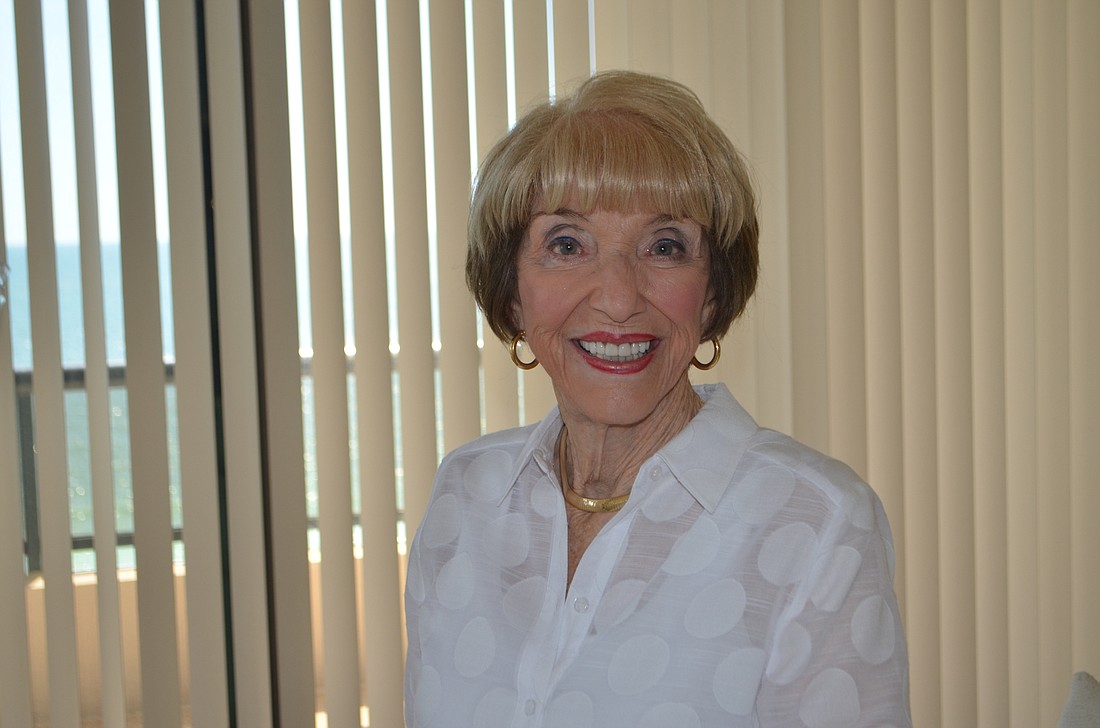- November 19, 2024
-
-
Loading

Loading

On Doris Kaplan’s first day in the engineering school at Washington University in St. Louis, a male student yelled across the room, “She’ll never make it.”
The Longboat Key resident thinks the male student flunked out after three months.
She, however, became the first woman to graduate with a mechanical engineering degree from the university.
That was the first and final negative comment she received while attending the school. On her first day, Professor Raymond Tucker asked her to stand and complete a math problem on the board. Kaplan hadn’t looked over the unit the night before because she was so worn out after buying books and learning her way around campus. She admitted that to Tucker, and he told her to sit down. That’s when the male student made his comment.
That night, Kaplan, a St. Louis native, went home and studied for hours. She knew Tucker was going to call on her the following day. She was right. This time, she was ready and successfully completed the equation in a half-hour.
Growing up, Kaplan never considered engineering as a career, but she always had numbers in her head.
When she was young, she and her brother, Alan, would take apart the clocks in their house and put them back together. When she was a little older, she built her mother a new washing machine because she didn’t like the way the old one worked. Her senior year of high school, she took a drafting course that set her on the path toward engineering.
“I was a girl of 16 just going on 17 when I started at Washington University,” she said. “I was very excited about that. I wasn’t quite sure what was going to be. Some of my friends said, ‘Oh, I understand those engineers. They’re always cursing in class. They’re this and that and the other thing.’ Well, I put that in the back of my mind. How do they know?”
For the next four years, Kaplan was the only female in her classes. She never hung out with the men in her class socially, but they always treated her well — so well, in fact, that they named her queen of the engineering school after two friends nominated her.
Kaplan didn’t let the fact that she was the only woman hinder her education. During her junior year, she won a writing contest after presenting a speech on women in engineering. When the assistant dean of the art school told her she couldn’t join a sketching class, she went back the next day and spoke with the dean, who allowed her to enroll.
This positive outlook and demand for respect are attributes she passed on to her three sons, Gary, David and Earl.
“First of all, she taught us to treat people with respect and how we want to be treated,” Gary Kaplan, the oldest, said. “...She always taught us that we should think very highly of ourselves and work very hard, and we could obtain whatever we wanted.”
Following her graduation in 1949, Kaplan worked for Emerson Electric in St. Louis before she became a mother. As soon as she had her first son, she stopped working because she didn’t want anyone else watching or teaching her children other than herself and her husband, Sylvan.
“I had another profession that I had to see to, and that was my beautiful children and grandchildren and great-grandchildren,” Kaplan said.
Despite the fond memories his mother made with her family, Gary Kaplan wonders what could have been if his mother stuck with her career.
“It would have been interesting to see where she would have gone if she had not stayed home with us,” he said. “I think she would have been very successful because she’s been successful in everything she’s done.”
But Kaplan wouldn’t change anything about her life. To this day, she is still in awe that she was a small part of its history at Washington University.
She’s also interested in how engineering is involved in events around her — like the town’s ongoing beach projects.
“Just look outside and wonder how our beaten-up beaches have been able to be enlarged, how all the cranes have entered the sky, how the automobiles have advanced and many other feats have come about, thanks to the men and women who are involved,” she said.